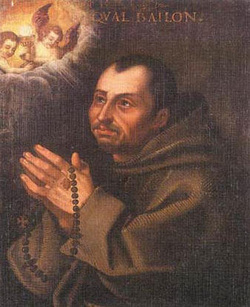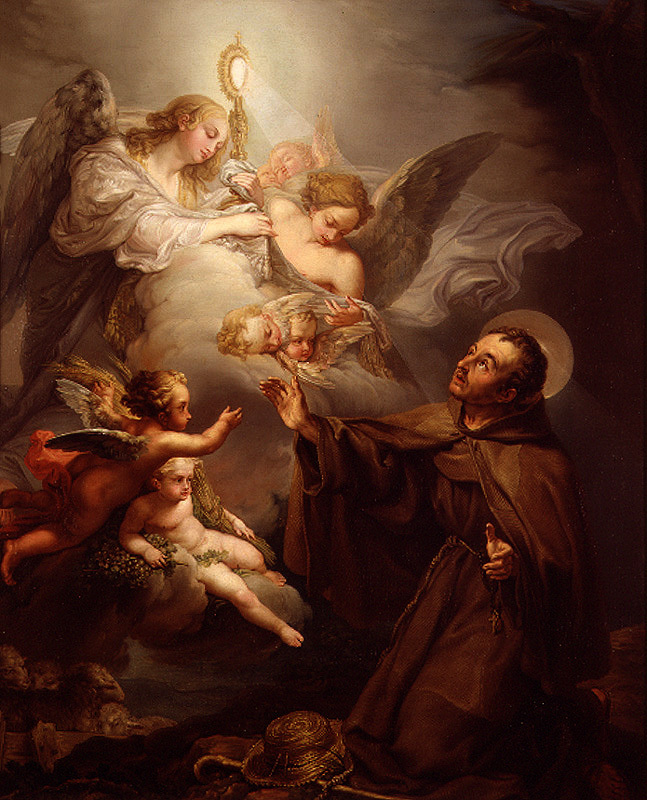
In a world which was to him a dry land where no water is, Paschal grew up a lily of the vallies, planted in the House of the Lord, whose strange sweetness spread all around. When he took upon him an harder life, by entering the Institute of Discalced Grey Friars, of the strict Observance, he rejoiced as a strong man to run a race, and gave himself up altogether to serve the Lord, thinking by day and by night only how he might attain more and more to have that mind in him which was was also in Christ Jesus. And so it came to pass in a little while, that his very elders set him before them for their model, as a pattern of a man seeking to be perfect in the path of the Seraphic Order. Paschal himself held the lowly place of a lay brother, and deemed himself the off-scouring of all things. He took most cheerfully, and discharged with the greatest humility and patience, the hardest and meanest work of the house, as though such were his peculiar right. His flesh would sometimes rebel against his spirit, but he broke it under the yoke of mortification, and brought it into subjection. Day by day the spirit of self-denial waxed stronger in him, and forgetting those things which were behind, he reached forth unto those things which were before.
To the Virgin Mother of God he had vowed himself when he was but a very young boy, and he paid her every day the services of a son, and trusted her as a mother. It is hard to tell how intense was the love which bound him to the Most Holy Sacrament of the Eucharist, a love which seemed literally stronger than death, for when his dead body was found lying on the bier, its eyes opened and shut twice when the Sacred Host was lifted up, to the amazement of all that were there. When he was among heretics, he suffered much and grievously at their hands for plainly and openly telling the truth touching this Sacrament: they often sought after him to murder him, but by the singular Providence of God he was delivered from those wicked men. When he was at prayer he often became utterly insensible, and his soul fainted away with the love of God. During these trances it was believed that he received directly from heaven that knowledge which he had, and which enabled him, although a man altogether rough and unlettered, to answer the hardest questions upon the mysteries of the faith, and even to write some books. At last, full of good works, he joyfully passed away to be ever with the Lord, at the hour foretold by himself, on the Feast of Pentecost, the 17th day of May, in the year of salvation 1592, on which day also he had been born fifty-two years before. Illustrious for the graces above mentioned, and for the miracles which he worked both during his life and after his death, he was named Blessed by Pope Paul V, and Alexander VIII enrolled him among the Saints. At length, Leo XIII declared and appointed him in a special manner the patron in heaven of eucharistic conferences, and likewise of all societies of the most holy Eucharist, whether founded up to that time, or that might founded in the future.





